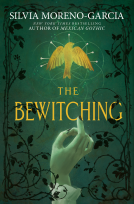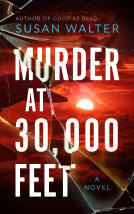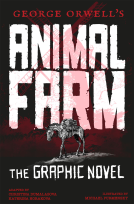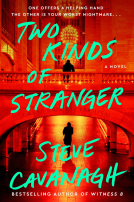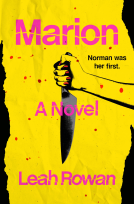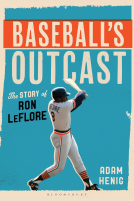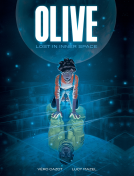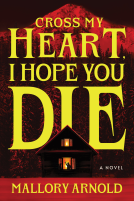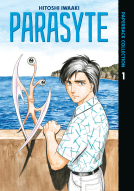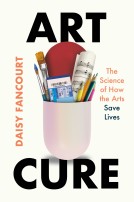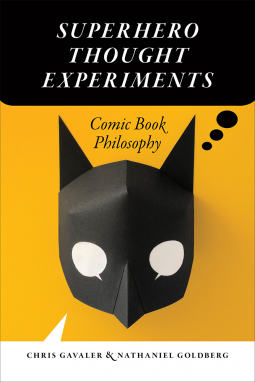
Superhero Thought Experiments
Comic Book Philosophy
by Chris Gavaler; Nathaniel Goldberg
This title was previously available on NetGalley and is now archived.
Send NetGalley books directly to your Kindle or Kindle app
1
To read on a Kindle or Kindle app, please add kindle@netgalley.com as an approved email address to receive files in your Amazon account. Click here for step-by-step instructions.
2
Also find your Kindle email address within your Amazon account, and enter it here.
Pub Date Sep 15 2019 | Archive Date Sep 16 2019
University of Iowa Press | University Of Iowa Press
Talking about this book? Use #SuperheroThoughtExperiments #NetGalley. More hashtag tips!
Description
Advance Praise
“Truly amazing! In a titanic team-up, Gavaler and Goldberg provide a secret origin for superhero fans and philosophers of the future (who may be the same people). Superhero fans will find they’ve transformed, changed into philosophizers who understand something deeper about the world. And philosophers will look back on Superhero Thought Experiments and see the laboratory where they gained their mental powers.”—Peter M. Coogan, author, Superhero: The Secret Origin of a Genre
“Superhero Thought Experiments presents a novel perspective on both comics and philosophy, arguing that superhero comics provide a rich source of philosophical thought experiments. Gavaler and Goldberg’s book should be required reading both for philosophers and for fans of comics interested in how philosophy is done.”—Roy T. Cook, author, The Art of Comics: A Philosophical Approach
“From the earliest issues of the original Superman and Batman adventures, the writers of superhero comics have been doing philosophy. This great new book makes it clear how superheroes can help us think about some of the most important ideas we’ll ever confront. We adults ignore comics to our own intellectual peril. The artwork is amazing, but so are the thought experiments. So, put on your cape and take off! It’s time for Truth, Justice, and the Philosophical Way!”—Tom Morris, author, Superheroes and Philosophy: Truth, Justice, and the Socratic Way
“Comics can teach you about philosophy, and philosophy will help you understand comics. What is right and wrong? What is the nature of the self? Is time really real? Superhero comics deal seriously with these classic philosophical issues.”—David Carrier, author, Aesthetics of the Margins/The Margins of Aesthetics: Wild Art Explained
Available Editions
| EDITION | Other Format |
| ISBN | 9781609386559 |
| PRICE | $22.50 (USD) |
Average rating from 8 members
Featured Reviews
It’s Superman vs. Batman: consequentialism vs. deontology! Within these pages you will find this and other astounding speculations as our intrepid authors perform feats of daring philosophy.
Okay, this isn’t actually a high-action book, but if you enjoy philosophy it’s a lot of fun. Gavaler and Goldberg treat superhero comic as thought experiments to explore the nature of doing good, existence, time, identity, communication, etc. (or morality, metaphysics, meaning, and medium if you prefer the alliteration of their section titles). Fodder for philosophizing includes Bizarro world, Dr. Doom’s time machine, Scarlet Witch’s imaginary twins, retcons & reboots, and much more. To me, the first three sections that focus on characters and stories were much more interesting than the last section that focused on comic books as a medium.
If you’re the kind of person who when confronted with someone asking “how do I know I’m really here?” gets annoyed by anything more theoretical than pinching/punching them and asking “did that hurt,” this isn’t the book for you. If you enjoy thought experiments and speculating on the nature of life, the universe, and everything give this a shot.
 Diane H, Reviewer
Diane H, Reviewer
A comic book blogger and a philosopher walk into a bar—actually they shared a college copier—and Superhero Thought Experiments was born. They have got to stop meeting like this...
What is the difference between philosophers’ thought experiments and comic book plots? Surprisingly little. Take this short quiz and select the real comic book plots.
1. “What if lightning struck a dead tree in a swamp and transformed it into The Swampman?”
2. “What if trying to travel to the past transported you to a different universe instead?”
3. “What if a time traveler returned to his childhood and told his past self about the future?”
4. “What if a mad scientist removed your brain and is keeping it alive in a vat?”
5. “What if you and all the universe were just the thoughts of a small child?”
Not as easy to distinguish as you thought, right?
The comic book plots are item number three and five (from 1975’s The Defenders and 1997’s Heroes Reborn: The Return, respectively). The rest were thought up by philosophers. The book’s “goal is to use superhero comics to illustrate philosophy, and in turn use philosophy to analyze superhero comics.” It does that by using the What If questions from above plus five more.
First up, for those of you partial just to DC or only to Marvel, both are used to illustrate the authors’ points.
It is hard to explain why I liked this book but let me try. I’ve only taken an introductory class in philosophy. My favorite philosopher is Kant, who basically believed if your intention is good, you are morally good regardless of any unintended consequences. According to this book, that is also the attitude of my favorite superhero, Batman. Coincidence or my subconscious mind looking for matching belief systems? Who knows but it is definitely thought-provoking.
I can totally see this book being a textbook for an introductory philosophy course. Conversely, if you liked your philosophy course and read comics, this is an engrossing book that will deepen your understanding of both. Finally, I believe any writer or fledgling writer of superhero comics must read Superhero Thought Experiments. It will encourage compelling plots that reflect enduring questions about the human condition. 4 stars!
Thanks to University of Iowa Press and NetGalley for a copy in exchange for my honest review.
 April A. T, Reviewer
April A. T, Reviewer
I’m a big fan of books that use pop culture to take a closer look at philosophy. This not only makes the topic more accessible but it also leads to some great discussions. In this case, readers are treated to a philosophical examination of superheroes. The results were quite enjoyable. If you like comic books and have even a passing interest in philosophy, you’ll find much to like about Superhero Thought Experiments.
 Dom N, Reviewer
Dom N, Reviewer
When I was in college, I took a course about Star Trek and Philosophy. It was a great way to explore the types of problems that keep philosophers up at night. Referring to Trek episodes I knew and loved made those thought experiments more concrete then anything I had in Philosophy 101. Sometimes talking about switching a train track to kill 1 person in order to save 10 people comes across as an outdated example.
Nowadays, superheroes seem to be the dominant genre in pop culture, so it makes sense philosophers would try to engage people using examples drawn from the comics. I admit my knowledge of comic book superheroes comes mostly from the Marvel and DC films, so I can't comment on the accuracy of the comic trivia. However, I appreciated how - just like my undergrad Star Trek class - it made abstract philosophical disputes more concrete. It's also clear that the authors aren't just trying to use comic books to get kids interested in philosophy. Tying characters like Batman to Kant helped me appreciate the comics more, recognizing that they too are part of the exploration of the human condition.
I could easily see this book being used for introductory undergrad philosophy classes.
[Note: I received a copy of this book from the publisher in exchange for an honest review]
Readers who liked this book also liked:
Jakub Politzer (Illustrator), Christina Dumalasova (adapter), Katerina Horakova (adapter)
Comics, Graphic Novels, Manga, General Fiction (Adult)
Brian Soonho Yoon
Children's Nonfiction, Crafts & Hobbies
